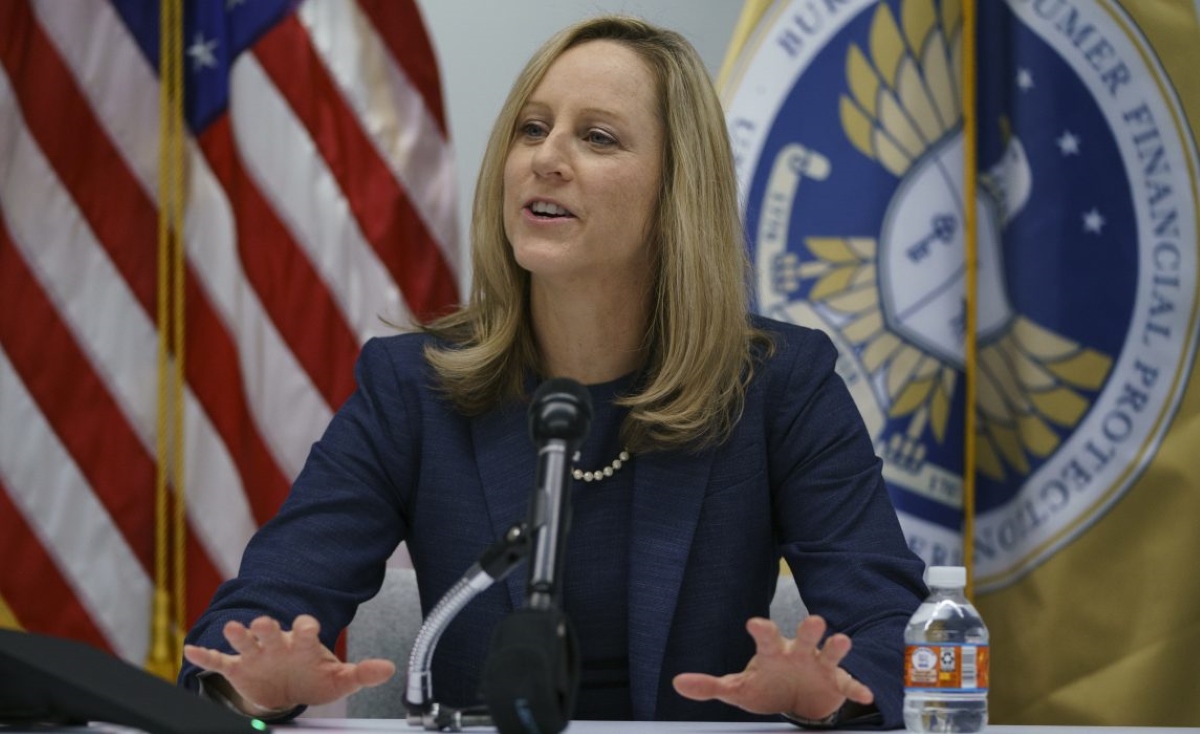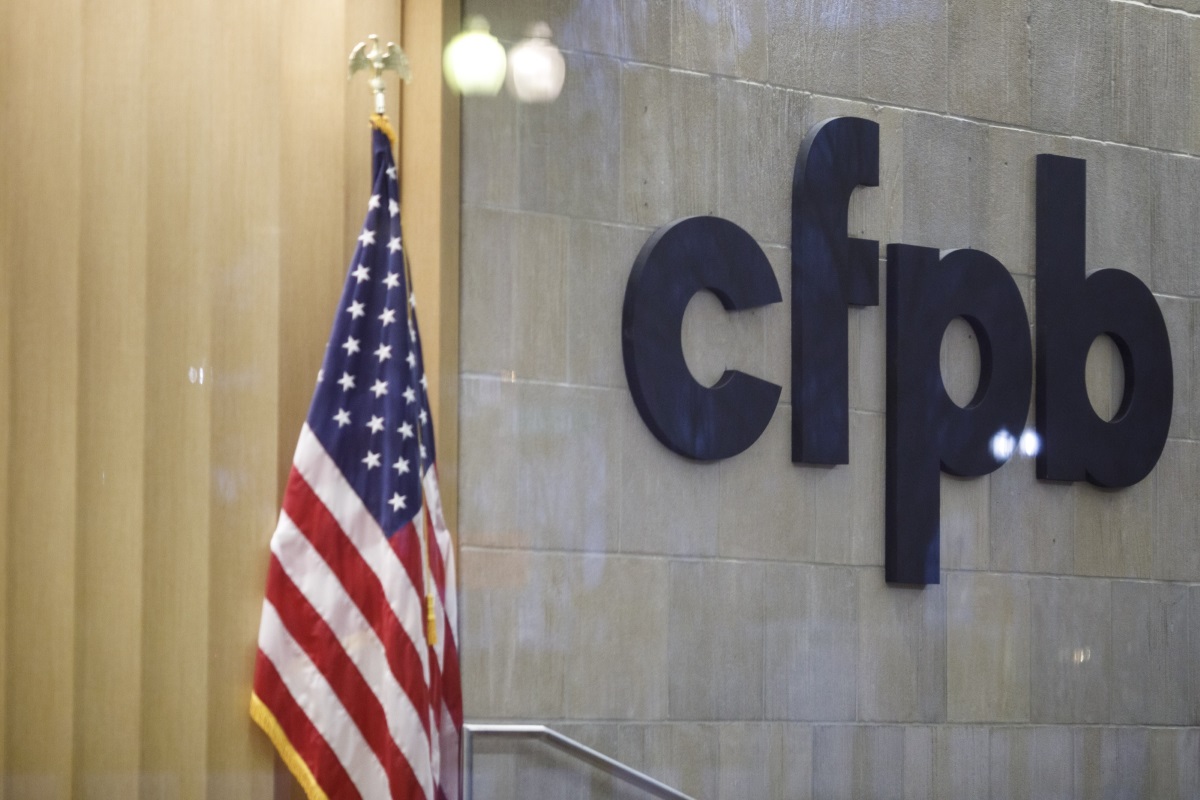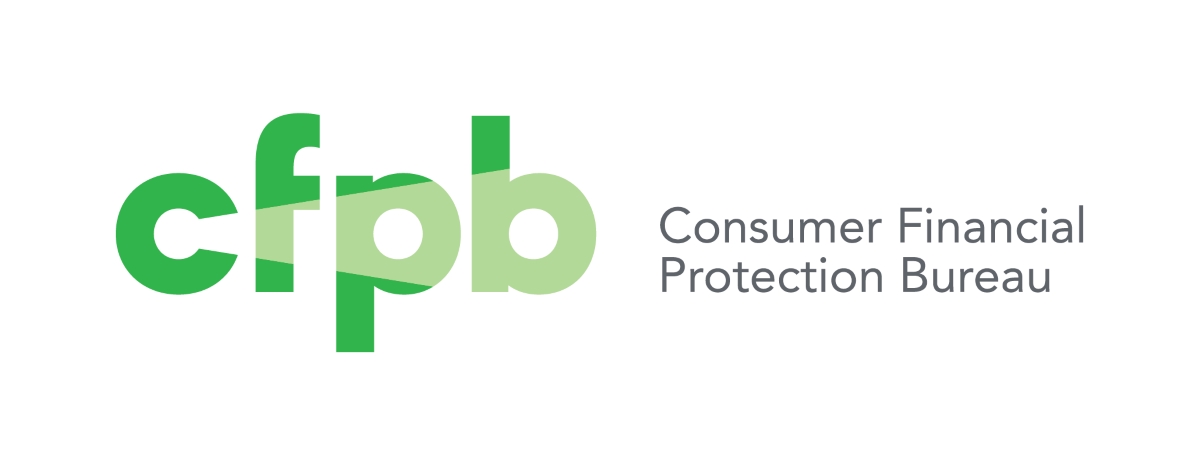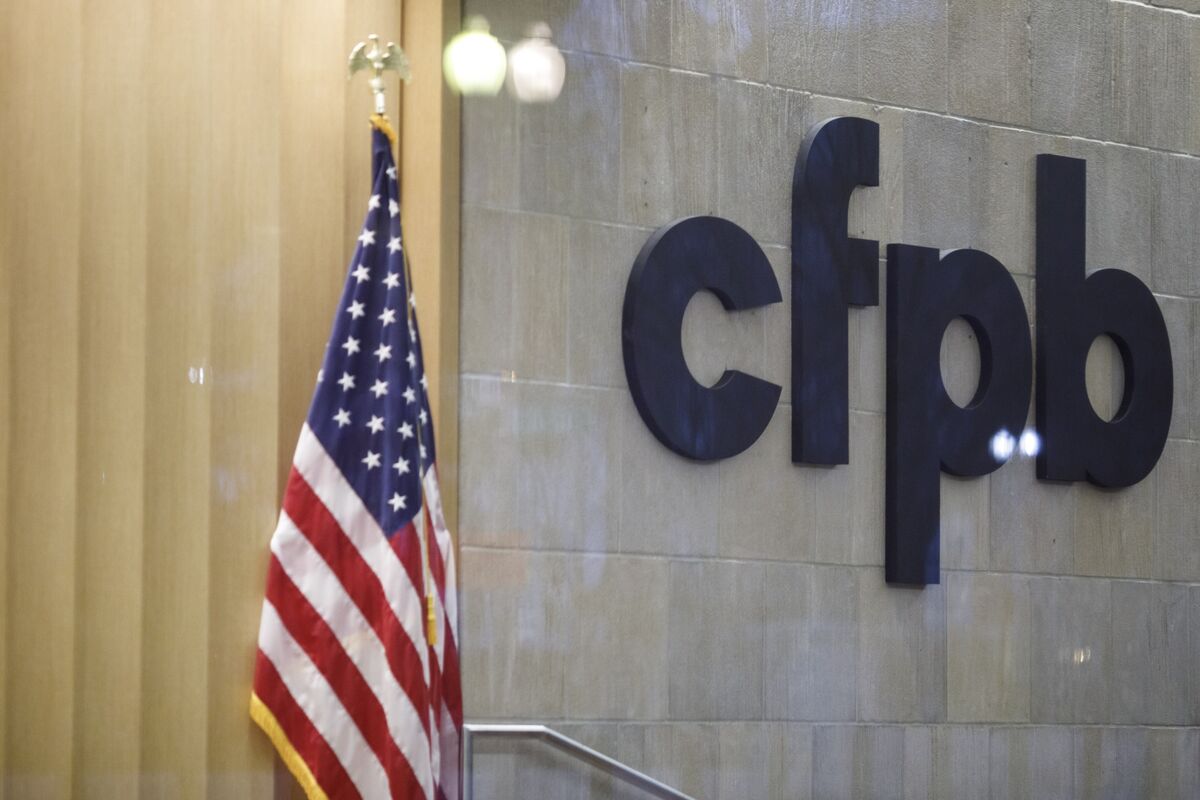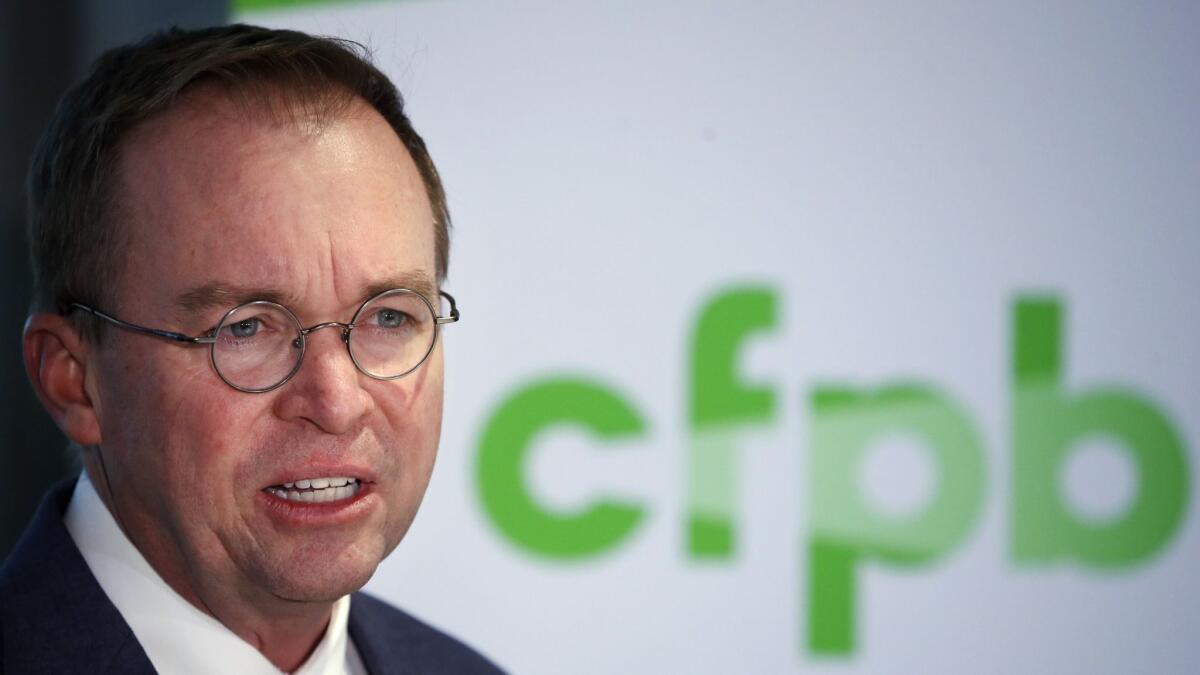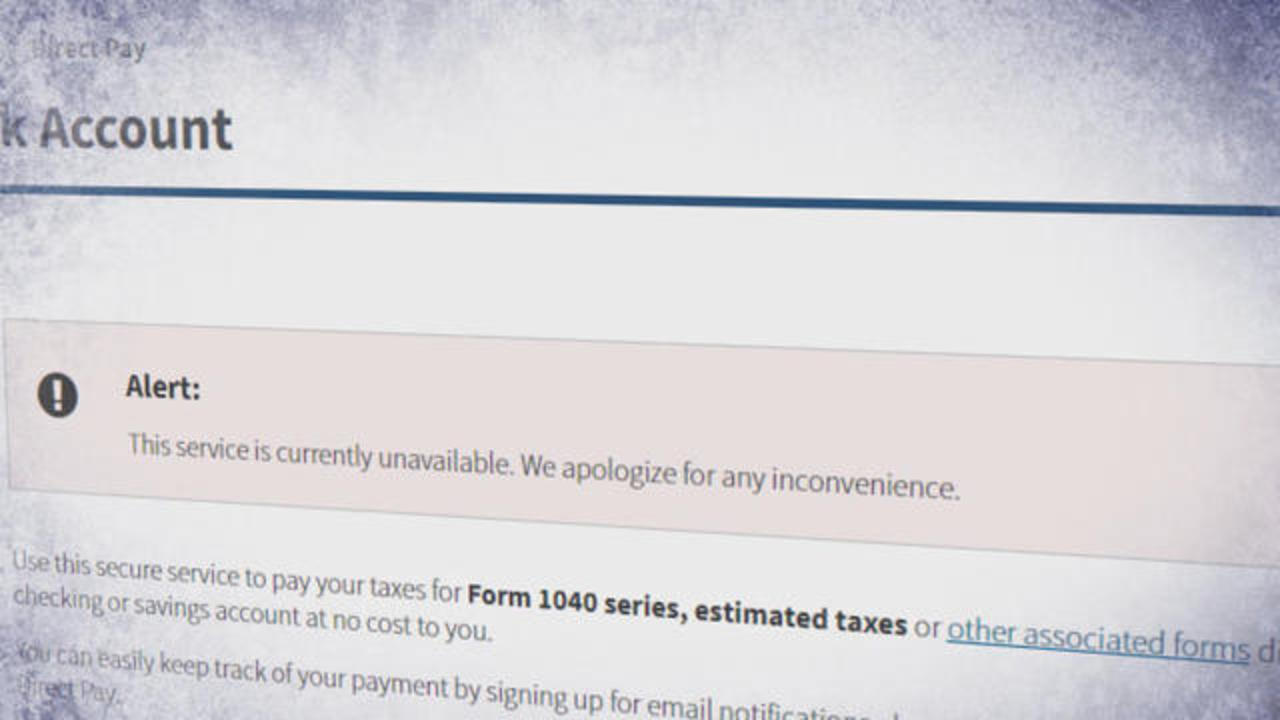Home>Finance>What Is Not A Responsibility Of The New Consumer Financial Protection Bureau (CFPB)?


Finance
What Is Not A Responsibility Of The New Consumer Financial Protection Bureau (CFPB)?
Modified: March 1, 2024
Discover what the Consumer Financial Protection Bureau (CFPB) isn't responsible for in the world of finance. Gain a clearer understanding of their limitations.
(Many of the links in this article redirect to a specific reviewed product. Your purchase of these products through affiliate links helps to generate commission for LiveWell, at no extra cost. Learn more)
Table of Contents
Introduction
The Consumer Financial Protection Bureau (CFPB) is an independent agency of the United States government that was established in 2010 with the goal of protecting consumers in the financial marketplace. With its broad authority and mandate, the CFPB plays a crucial role in ensuring fair and transparent practices in various aspects of the financial industry.
However, it is important to note that the CFPB has specific responsibilities and limitations. While it strives to safeguard consumers from predatory practices and ensure access to financial products and services, there are certain areas that fall outside the purview of the CFPB’s jurisdiction.
In this article, we will explore the background of the Consumer Financial Protection Bureau and delve into its main responsibilities. We will also highlight what is not within the scope of the CFPB’s authority, providing a comprehensive understanding of the agency’s role in the financial landscape.
Understanding the limitations of the CFPB is essential for consumers, financial institutions, and policymakers alike, as it helps to clarify the boundaries of its regulatory authority and the roles of other entities within the financial sector.
Without further ado, let’s delve into the details of the Consumer Financial Protection Bureau, its responsibilities, and what is not considered part of its mandate.
Background of the Consumer Financial Protection Bureau (CFPB)
The Consumer Financial Protection Bureau (CFPB) was established as part of the Dodd-Frank Wall Street Reform and Consumer Protection Act, which was passed in response to the financial crisis of 2008. The goal of creating the CFPB was to address the regulatory gaps and strengthen consumer protection in the financial marketplace.
Prior to the establishment of the CFPB, consumer financial protection was scattered across various government agencies, leading to inefficiencies and an inconsistent approach to regulating the financial industry. The CFPB was designed to consolidate these responsibilities under one roof, with the aim of promoting transparency, fairness, and accountability in the consumer financial sector.
The CFPB operates as an independent agency, with its funding derived from the Federal Reserve System. This independence is intended to shield the agency from political pressure, allowing it to focus solely on its mandate: protecting consumers in the financial marketplace.
Since its inception, the CFPB has become a key player in the financial industry, wielding regulatory authority over banks, credit card companies, mortgage servicers, payday lenders, and other financial institutions. Its mission is to ensure that consumers are treated fairly and have access to transparent information when making financial decisions.
Furthermore, the CFPB has the power to enforce consumer protection laws, conduct investigations, and issue regulations and guidelines to address unfair, deceptive, or abusive practices in the financial sector. It also educates and empowers consumers through financial literacy initiatives, tools, and resources.
Overall, the creation of the CFPB was a significant step forward in protecting the rights of consumers in the financial marketplace. By consolidating and strengthening consumer protection efforts, the CFPB aims to level the playing field and promote a fair and transparent financial system for all individuals and households in the United States.
Responsibilities of the Consumer Financial Protection Bureau (CFPB)
The Consumer Financial Protection Bureau (CFPB) is entrusted with a wide range of responsibilities to ensure consumer protection and promote fair practices in the financial marketplace. Let’s explore some of the key areas in which the CFPB plays a crucial role:
- Enforcing consumer financial laws: One of the primary responsibilities of the CFPB is to enforce federal consumer financial laws. It has the authority to investigate and take action against financial institutions that engage in unfair, deceptive, or abusive practices. This includes enforcing laws such as the Truth in Lending Act, the Fair Credit Reporting Act, and the Equal Credit Opportunity Act, among others.
- Regulating financial institutions: The CFPB has the power to issue regulations and guidelines that pertain to the financial products and services offered by banks, credit unions, debt collectors, mortgage servicers, payday lenders, and other financial institutions. These regulations are aimed at ensuring that consumers are provided with clear and transparent information, fair terms, and protection from predatory practices.
- Monitoring consumer complaints: The CFPB operates a consumer complaint database where individuals can submit complaints about financial products and services. The CFPB analyzes these complaints, investigates patterns of wrongdoing, and takes appropriate enforcement actions. This not only helps individuals resolve their issues but also provides valuable data that informs the CFPB’s regulatory efforts.
- Educating and empowering consumers: The CFPB is committed to promoting financial literacy and empowering consumers to make informed financial decisions. It provides educational resources, tools, and guides to help individuals understand complex financial concepts and navigate the marketplace effectively. By equipping consumers with knowledge, the CFPB aims to level the playing field and reduce predatory practices.
- Research and policy development: The CFPB conducts research and analysis to better understand consumer financial behaviors, trends, and emerging risks. This research informs the agency’s policy decisions, allowing it to proactively address consumer protection issues and develop targeted regulatory initiatives.
These are just some of the key responsibilities of the CFPB. By enforcing consumer financial laws, regulating financial institutions, monitoring consumer complaints, educating and empowering consumers, and conducting research, the CFPB strives to create a fair and transparent financial marketplace that protects the rights of consumers.
What Is Not a Responsibility of the Consumer Financial Protection Bureau (CFPB)
While the Consumer Financial Protection Bureau (CFPB) has a broad mandate to protect consumers in the financial marketplace, it is important to understand what falls outside the scope of its responsibilities. Here are some areas that are not considered primary responsibilities of the CFPB:
- Securities regulation: The CFPB is not responsible for regulating securities, such as stocks and bonds. This falls under the jurisdiction of the U.S. Securities and Exchange Commission (SEC). The SEC focuses on ensuring the fair and orderly functioning of the securities markets, protecting investors, and facilitating capital formation.
- Insurance oversight: The CFPB does not have direct authority over insurance companies or insurance products. Insurance regulation is primarily under the purview of state insurance departments. Each state regulates insurance within its own jurisdiction, ensuring that insurance companies comply with state laws and protect policyholders.
- Tax enforcement: The CFPB does not enforce tax laws or collect taxes. The Internal Revenue Service (IRS) is responsible for administering and enforcing federal tax laws, ensuring that taxpayers comply with their tax obligations, and collecting taxes owed to the government.
- Privacy regulations: While the CFPB plays a role in protecting consumers’ financial information, it does not have exclusive authority over privacy regulations. Privacy regulations and data protection fall under the jurisdiction of various federal agencies, such as the Federal Trade Commission (FTC) and the Office for Civil Rights (OCR), as well as state laws and regulations.
- Monetary policy: The CFPB is not responsible for setting or implementing monetary policy. That duty lies with the Federal Reserve System, which is tasked with managing the nation’s money supply, promoting economic stability, and controlling inflation.
While these areas are not at the core of the CFPB’s responsibilities, it is important to note that there may be some overlap or collaboration with other agencies in certain circumstances. Additionally, the CFPB may have a role to play in addressing consumer complaints related to these areas, ensuring that consumers are informed and protected.
By understanding the limitations of the CFPB’s responsibilities, consumers, financial institutions, and policymakers can effectively navigate the regulatory landscape and seek the appropriate agencies for specific issues within these non-CFPB areas of responsibility.
Conclusion
The Consumer Financial Protection Bureau (CFPB) plays a vital role in protecting consumers in the financial marketplace. With its broad authority, the CFPB enforces consumer financial laws, regulates financial institutions, monitors consumer complaints, educates and empowers consumers, and conducts research to promote a fair and transparent financial system.
However, it is important to recognize that the CFPB also has limitations in its scope of responsibilities. Securities regulation, insurance oversight, tax enforcement, privacy regulations, and monetary policy are areas that fall outside the primary responsibilities of the CFPB.
By understanding these limitations, consumers, financial institutions, and policymakers can make informed decisions and seek the proper channels for addressing their specific needs and concerns. The CFPB collaborates with other agencies that have jurisdiction over these areas to ensure comprehensive consumer protection and regulatory oversight.
The establishment of the CFPB has significantly enhanced consumer protection efforts and promoted transparency and fairness in the financial industry. Through its enforcement actions, regulations, consumer complaint monitoring, educational resources, and research initiatives, the CFPB strives to create a level playing field and empower consumers to make informed financial decisions.
In conclusion, the Consumer Financial Protection Bureau plays a crucial role in safeguarding consumers’ rights and interests in the financial marketplace. By enforcing consumer financial laws, regulating financial institutions, and empowering consumers, the CFPB contributes to building a stronger and more equitable financial system for all.



